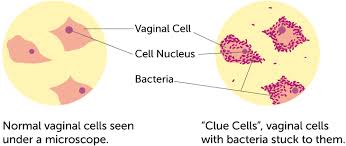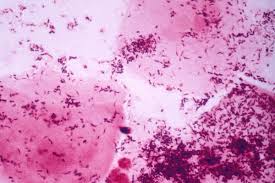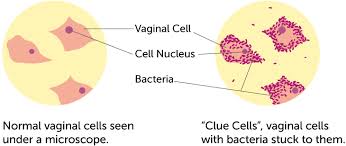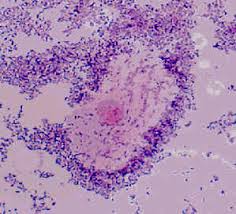Bacterial vaginosis (BV), also known as vaginal bacteriosis is the most common cause of vaginal infection for women of childbearing age.
Although it frequently develops after sexual intercourse with a new partner,it is important to remember that bacterial vaginosis is not a sexually transmitted infection (STD). BV is however more common in women with multiple partners.
Bacterial vaginosis is often confused with candidiasis (yeast infection) or Trichomonas vaginalis (trichomoniasis) These conditions are not caused by bacteria but are caused when there is an imbalance of the naturally occurring bacteria found in a womans vagina. Smoking and using hygiene products are linked to a higher risk of developing BV.
According to the National Health Service in the UK, around 12% to 30% of adult women in the UK are affected with BV. About 20% of pregnant women in the UK are also affected with BV. The Centers for Disease Control and Prevention in the USA estimate that 16% of US women are affected. Bacterial Vaginosis occurs in 1 of 3 women so very few of us have the pleasure of not having this condition at some stage in our lifes.
Bacterial vaginosis can sometimes be asymptomatic meaning that about 50% of women with BV have no symptoms. Doctors say treatment is not required if the woman is found to have BV but has no symptoms. Sometimes BV can occur and also disappear for no obvious reason.
Even though antibiotic medication will work in up to 90% of cases, 25% of women will develop BV again within four weeks.
A pregnant woman with BV has a higher risk of complications and could give birth before the 37th week of pregnancy.
So What are the signs and symptoms of bacterial vaginosis?
As stated above 50% of all women with BV have no symptoms . If a woman does have symptoms, she does not necessarily need to get tested to find out.
The main sign is vaginal discharge:
A vaginal discharge which is watery and thin
This vaginal discharge can become grey or white and may have a strong and unpleasant smell that is often described as fishy
The following symptoms also occur but are much less common:
A burning sensation during urination
An itching around the outside of the vagina
So What causes bacterial vaginosis?
Bacterial vaginosis is caused by an imbalance in the bacteria that are normally found in a female’s vagina – an imbalance in the vagina’s naturally occurring bacterial flora.
To date nobody fully understands why this imbalance occurs. The vagina contains mostly good bacteria and few harmful bacteria. With bacterial vaginosis the harmful bacteria grow in numbers and as yet Doctors do not know what role these harmful bacteria play in causing BV.
A female’s vagina should contain the lactic acid bacteria, called lactobacilli. These bacteria naturally produce lactic acid which makes the vagina slightly acidic. This acidity prevents other bacteria from growing there. If the vagina has lost this acidity then other bacteria will have the opportunity to grow. In addition to this if If there are fewer lactobacilli the vagina may become less acidic…a double edged sword.
Any female can develop BV. There are however some behaviors or activities that can upset the balance of these naturally occurring bacterial flora and increase the risk of developing BV.
These are below
Douching where you use water or a medicated solution to clean the vagina
Having a bath with an antiseptic liquid
A new sex partner
Multiple sex partners
Having a perfumed bubble baths with some scented soaps
Smoking
Using an Intrauterine device, such as a contraceptive device that is made from plastic and copper and fits inside the uterus
Vaginal deodorants
Washing your underwear with strong detergents
However:
Women who have never had a sexual partner may be affected.
On another note I can assure you that You cannot get BV from touching a toilet seat, touching bedding or swimming pools
REFERENCES
Bacterial Vaginosis – News Medical
Sep 14, 2013 … Bacterial vaginosis, also called BV is the most common vaginal infection in women of childbearing age. It happens when the normal balance of …
STD Facts – Bacterial Vaginosis
Mar 11, 2014 … Bacterial Vaginosis (BV) Fact Sheet from CDC. What is BV? How common is BV? How do people get BV? And more…
Bacterial Vaginosis Causes, Symptoms, and Treatments – WebMD
Mar 12, 2014 … Bacterial vaginosis causes specific symptoms that can be different from two other common types of vaginal infections, vaginal yeast infection …




